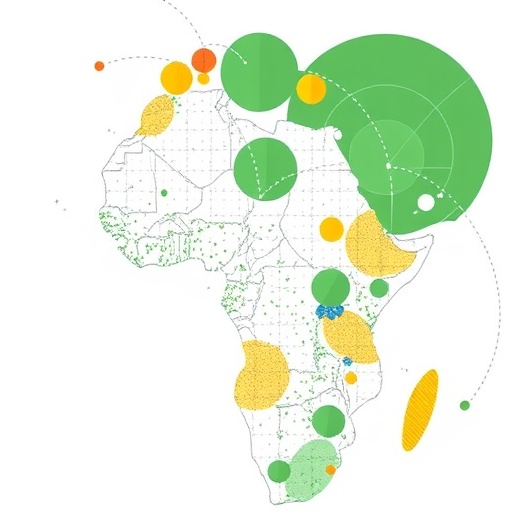
In the evolving landscape of biomedical engineering education, there is an increasing emphasis on developing practical skills that extend beyond theoretical knowledge. A pioneering approach has come to the foreground, which integrates an annotation project into senior-level courses. This innovative pedagogical strategy has been designed to enhance the analytical skills and scientific communication abilities of students, equipping them with competencies essential for navigating the complexities of primary literature. As future leaders in the biomedical field, students in this initiative are not just passive recipients of information; they are actively engaging with research, fostering a deeper understanding of scientific discourse.
The integration of an annotation project allows students to delve into primary literature critically. Through this hands-on engagement, students are encouraged to annotate research articles systematically. They analyze methodologies, results, and conclusions, promoting a comprehensive understanding of the scientific process. This critical engagement not only enables students to dissect complex information but also empowers them to articulate their insights effectively. The annotation process cultivates a habit of meticulous reading and questioning, vital traits for any aspiring biomedical engineer.
Moreover, the role of science communication cannot be overstated in biomedical engineering. Students must learn how to convey intricate scientific concepts in a manner accessible to diverse audiences, including peers, policymakers, and the public. This project fosters communication skills by requiring students to share their annotations and insights in collaborative settings. Through peer discussions and presentations, they learn to adapt their messaging, refining their ability to explain complex terms and concepts without diluting essential information. This dynamic fosters an environment of collective learning, where students can support each other in mastering scientific discourse.
The incorporation of these projects into biomedical engineering curricula resonates deeply with the broader push for experiential learning in higher education. Faculty members advocating for this approach emphasize the importance of real-world applications of theoretical learning. By studying primary literature and interpreting content, students enhance their critical thinking skills and apply their classroom knowledge to contemporary research scenarios. This real-world connection boosts student engagement, reinforcing the relevance of their studies to their future careers.
Notably, this innovative curriculum design extends its impact beyond individual classes. It encourages a culture of inquiry within the department and fosters interdisciplinary collaboration. As students share insights from various research articles, they broaden their perspectives, allowing them to see connections across different fields within biomedical engineering. This collaborative approach nurtures a sense of community, reinforcing that science is often a collective endeavor rather than the work of individuals in isolation.
Additionally, the annotation project serves as a bridge between theory and practice, familiarizing students with the process of scientific research and publication. Understanding how research articles are constructed—from the introduction of hypotheses to the discussion of findings—gives students valuable insights into the scientific method. This experiential knowledge prepares them for future roles, where they may need to analyze literature critically or even contribute to it as authors themselves.
Moreover, as students progress through this engaging process, they inevitably encounter challenges that enhance their resilience and adaptability. Learning to dissect and critique peer-reviewed articles can be daunting. However, this struggle is often where the most significant educational gains occur. Overcoming these difficulties cultivates perseverance and fosters a growth mindset. Students come to appreciate that mastery takes time and effort, which are essential lessons in any scientific discipline.
As this educational initiative advances, it also seeks to incorporate feedback from students and faculty alike. Regular assessment of the program’s effectiveness ensures that it remains relevant and responsive to the needs of the students. Through surveys and focus groups, valuable insights can be gathered to enhance the project further. This iterative process of feedback and adjustment is crucial in maintaining an educational framework that adapts to the ever-changing landscape of biomedical research and education.
Another significant benefit of this integration of annotation projects is the empowerment it offers to students. As they engage deeply with scientific literature, they develop a sense of ownership over their learning process. This empowerment fuels curiosity, motivating students to pursue additional research topics and areas of interest independently. Encouraging self-directed learning is paramount in higher education, as it fosters lifelong learning habits that are crucial in the fast-paced domain of biomedical engineering.
It’s essential to highlight that while the primary focus of this initiative is on educational outcomes, it also has potential implications for broader societal impact. By enhancing the ability of future biomedical engineers to communicate scientific concepts, this program may bridge gaps between the scientific community and the public. As students learn to articulate their findings clearly, they contribute to an informed society, where scientific literacy is increasingly indispensable. Enhanced communication skills can lead to a better understanding of health-related issues and innovations, encouraging public engagement with science.
Furthermore, as biomedical engineering continues to evolve with advancements in technology and research methodologies, educating students on navigating emerging trends becomes imperative. Annotation projects can be tailored to include recent literature on cutting-edge topics, such as artificial intelligence in healthcare, biomedical ethics, and personalized medicine. This approach ensures that students remain at the forefront of the discipline, equipped with the knowledge and analytical skills required to tackle contemporary challenges in biomedical engineering.
The tradition of academic excellence in biomedical engineering is reinforced through the introduction of such forward-thinking practices. Beyond technical proficiency, today’s engineers need a holistic set of skills that encompasses critical analysis, effective communication, and adaptability. Ultimately, the integration of annotation projects in the curriculum exemplifies the shift towards a more comprehensive educational approach. Students emerge from these programs not only as competent engineers but also as informed communicators capable of influencing public discourse around vital health issues.
As we witness the proliferation of such innovative educational strategies in biomedical engineering, the future looks promising. Students will benefit immensely from engaging with primary literature through annotation projects, ensuring they’re well-prepared to become the next generation of leaders in the field. This balanced emphasis on analytical reading and effective communication positions them effectively within academia, industry, and beyond, enabling them to contribute significantly to advancements in biomedical science.
In conclusion, the integration of an annotation project in senior-level biomedical engineering courses represents a significant leap toward a more engaging and effective educational experience. By immersing students in the analysis of primary literature and enhancing their science communication skills, this approach not only prepares them for professional success but also fosters a passion for lifelong learning. As they navigate the complexities of scientific research and learn to communicate effectively, these students are poised to make meaningful contributions to the field of biomedical engineering, driving innovation and bridging gaps between science and society.
Subject of Research: Enhancing biomedical engineering education through annotation projects.
Article Title: Integrating an Annotation Project in a Senior-Level Biomedical Engineering Course to Develop Primary Literature Analysis and Science Communication Skills.
Article References: Tanyeri, M. Integrating an Annotation Project in a Senior-Level Biomedical Engineering Course to Develop Primary Literature Analysis and Science Communication Skills. Biomed Eng Education 5, 69–77 (2025). https://doi.org/10.1007/s43683-024-00161-7
Image Credits: AI Generated
DOI: https://doi.org/10.1007/s43683-024-00161-7
Keywords: Biomedical Engineering, Education, Annotation Projects, Science Communication, Primary Literature Analysis.
Tags: annotation projects in educationBiomedical engineering educationcompetencies for future biomedical leaderscritical analysis of research articlesenhancing analytical skills in studentsfostering scientific discourse among studentshands-on learning in engineering educationinnovative teaching strategies in engineeringmethodologies in biomedical researchpractical skills in engineeringscientific communication in STEMstudent engagement in primary literature




